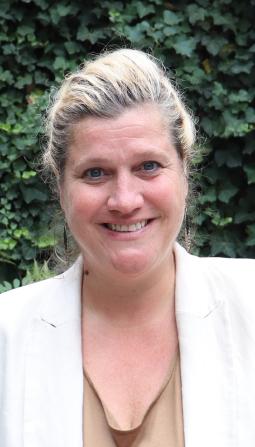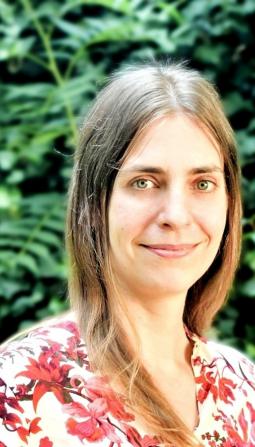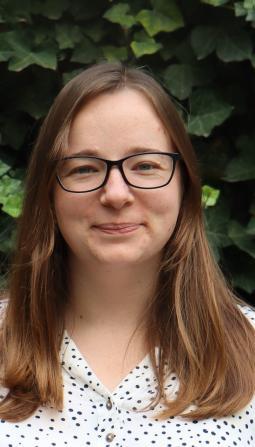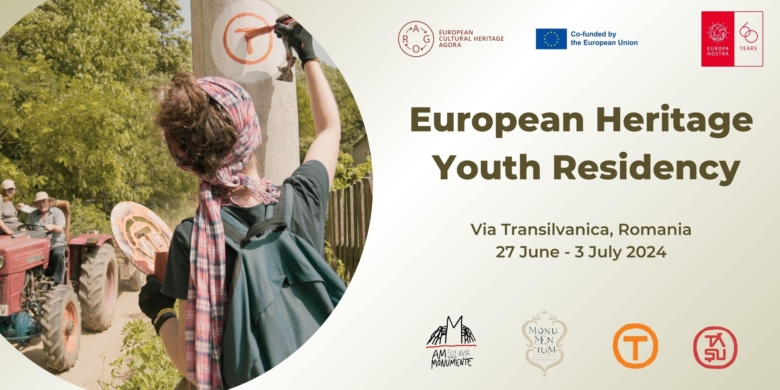
Join the second European Heritage Youth Residency in Romania | Apply by 22 April 2024
Europa Nostra, the largest European network of heritage organisations, Tășuleasa Social and Asociația Monumentum, both winners of the European Heritage Awards / Europa Nostra Awards, will organise the second edition of the European Heritage Youth Residencies from 27 June until 3 July 2024 in Romania.
Around 15 young heritage stakeholders will be selected to come together and discuss heritage and sustainable tourism. Participants will partake in hiking and other hands-on heritage activities, and will collaborate on lasting resources for other heritage professionals and students.
The European Heritage Youth Residency 2024 is an opportunity for students, professionals and heritage stakeholders to see first-hand how heritage policies and projects around sustainable tourism have been successfully implemented. This includes the Via Transilvanica, a 1,400 km hiking trail offering a journey through Romanian heritage, and the Ambulance for Monuments, an innovative programme to carry out emergency repairs on heritage buildings in Romania.
The programme is designed for 18-35 year old students, professionals and stakeholders with an affinity for heritage and sustainable tourism.
The programme seeks to initiate new formats of cross-sectoral cooperation, fostering projects of co-creation and collaborative plans. The peer-learning methodology of the programme is designed to stimulate interaction, collaborative learning and solution-building in a cooperative and friendly expert environment. Participants will be expected to present their experiences working within sustainable tourism. This includes sharing successful local policies and projects, as well as their top tips, pitfalls and learnings. The selected participants will also get helpful information and ideas for improving or initiating their local projects or ideas on how they might transfer some of the presented practices to their localities.
The programme will include meetings with local stakeholders, site visits, hikes, restoration and solution-building workshops.
To learn more about the residency and the rules to apply, please read the Call for Applications.
Applications must be submitted by 22 April 2024 via the following link.
- Francesca Pozzebon
- 16 April 2024
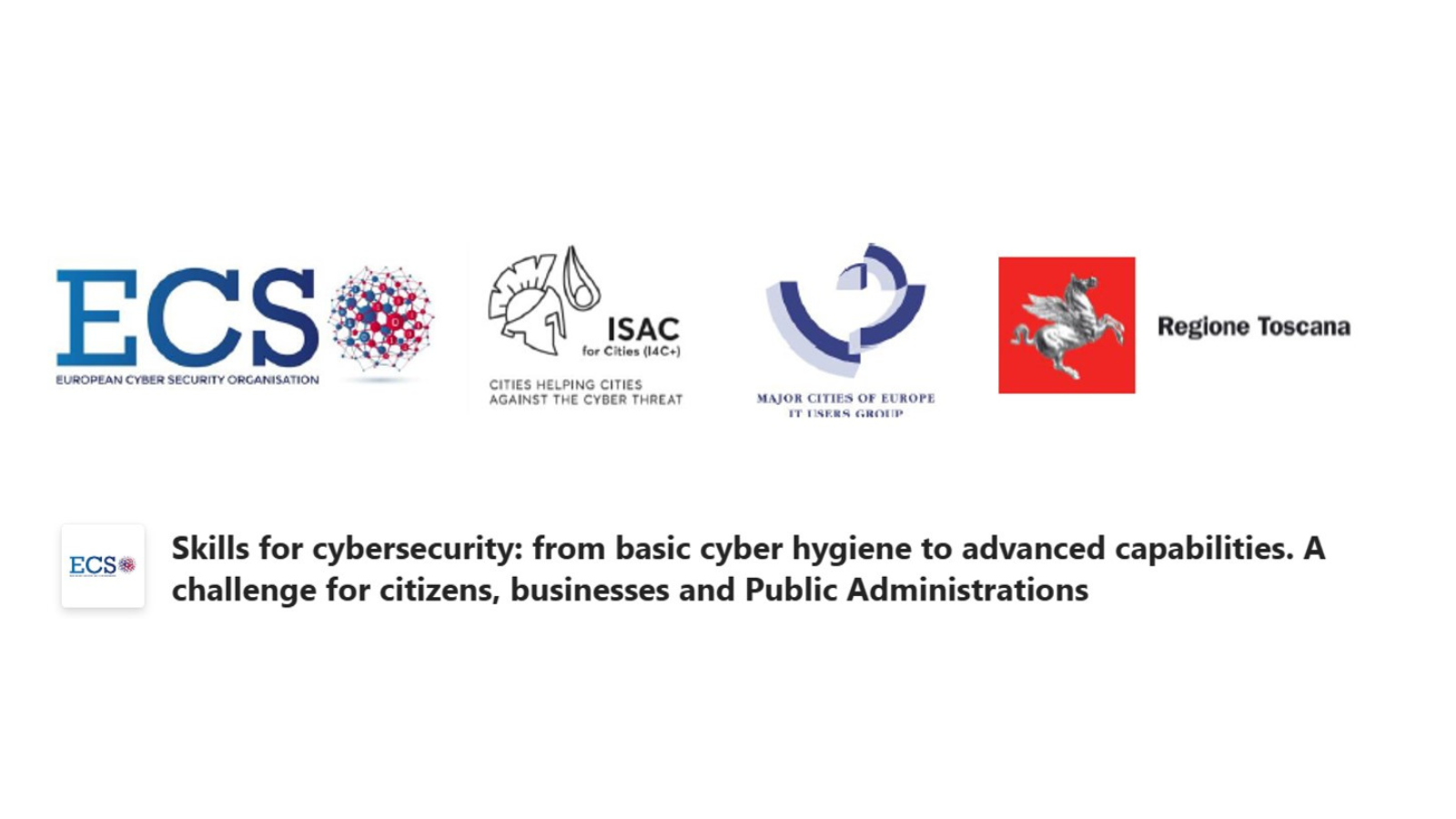
Webinar on ‘Skills for cybersecurity: from basic cyber hygiene to advanced capabilities. A challenge for citizens, businesses and Public Administrations”
The Tuscany region and ECSO would like to invite you to participate in the webinar “Skills for cybersecurity: from basic cyber hygiene to advanced capabilities. A challenge for citizens, businesses and Public Administrations”, taking place on 22 April, 14:30-16:00.
This webinar is organised in the framework of the European Year of Skills.
The webinar is part of the Cyber Resilient Regions Community (CRR) initiative run by ECSO with Tuscany Region, Major Cities of Europe and EU City ISAC I4C+. The session focuses on cybersecurity skills with a look at challenges, opportunities and the involvement of a broad EU audience.
The webinar will be an open debate, with presentations from ECSO on its Road2Cyber Platform. This will be followed by regional initiatives from the Tuscany and Brittany regions, focusing on how the territories advance at different levels, from basic cyber hygiene to advanced skills. Then, we will proceed to an open panel discussion with the presenters and the audience.
The Cyber Resilient Regions Community (CRR) initiative aims to build a European community of Local and Regional Authorities (LRAs) wanting to increase digital resilience. It will engage LRA’s Chief Information Security Officers (CISOs) and related roles, as well as IT or security specialists with cybersecurity responsibilities in a community that aims to increase LRAs' cybersecurity resilience. Surveys, events, and chats with experts and peers are among the activities promoted within the CRR initiative.
If you are interested in joining, please register here.
This webinar is open access, so if you know other organisations that would be interested in joining, do not hesitate to share this link.
- 22/04/2024 - 14:30 - 22/04/2024 - 16:00
- This meeting will take place online
- Francesca D'Angelo
-
Member
-
Working Group

Evaluating the societal innovation impact of R&I: learnings from Horizon 2020 and looking forward to FP10
Horizon Europe will deliver societal impact by addressing EU policy priorities and global challenges, including the UN Sustainable Development Goals, through R&I. Progress towards societal impact is monitored across the whole programme through three impact pathways and related indicators in the short, medium and longer term.
The SEFS Working Group will dedicate its forthcoming meeting to the outcomes of the Ex post-evaluation of Horizon 2020, the EU framework programme for research and innovation, published on 29 January 2024 and consider the societal impact of R&I in particular. It will discuss the impact of Horizon 2020 funding for social innovation and look forward to FP10.
The aim of the meeting is to foster a better understanding of what worked well and what the remaining challenges are. Furthermore, the meeting will provide an opportunity for ERRIN members to learn from good practices in this field.
You can find the agenda attached. You can register for this meeting by clicking the orange button on the right.
ERRIN's Science and Education for Society Working Group addresses topics related to the concept of place-based universities and engagement with society and citizens while also working on the role of education (both VET and Higher Education) in the Research and Innovation Smart Specialisation Strategies (RIS3) as well as education and skills for research and innovation. You can find the SEFS Working Group's 2024 Annual Plan here.
- 22/04/2024 - 14:00 - 22/04/2024 - 15:30
-
ERRIN
Rue de Luxembourg 3
1000 Brussels
Belgium - Astrid Hannes
-
Working Group
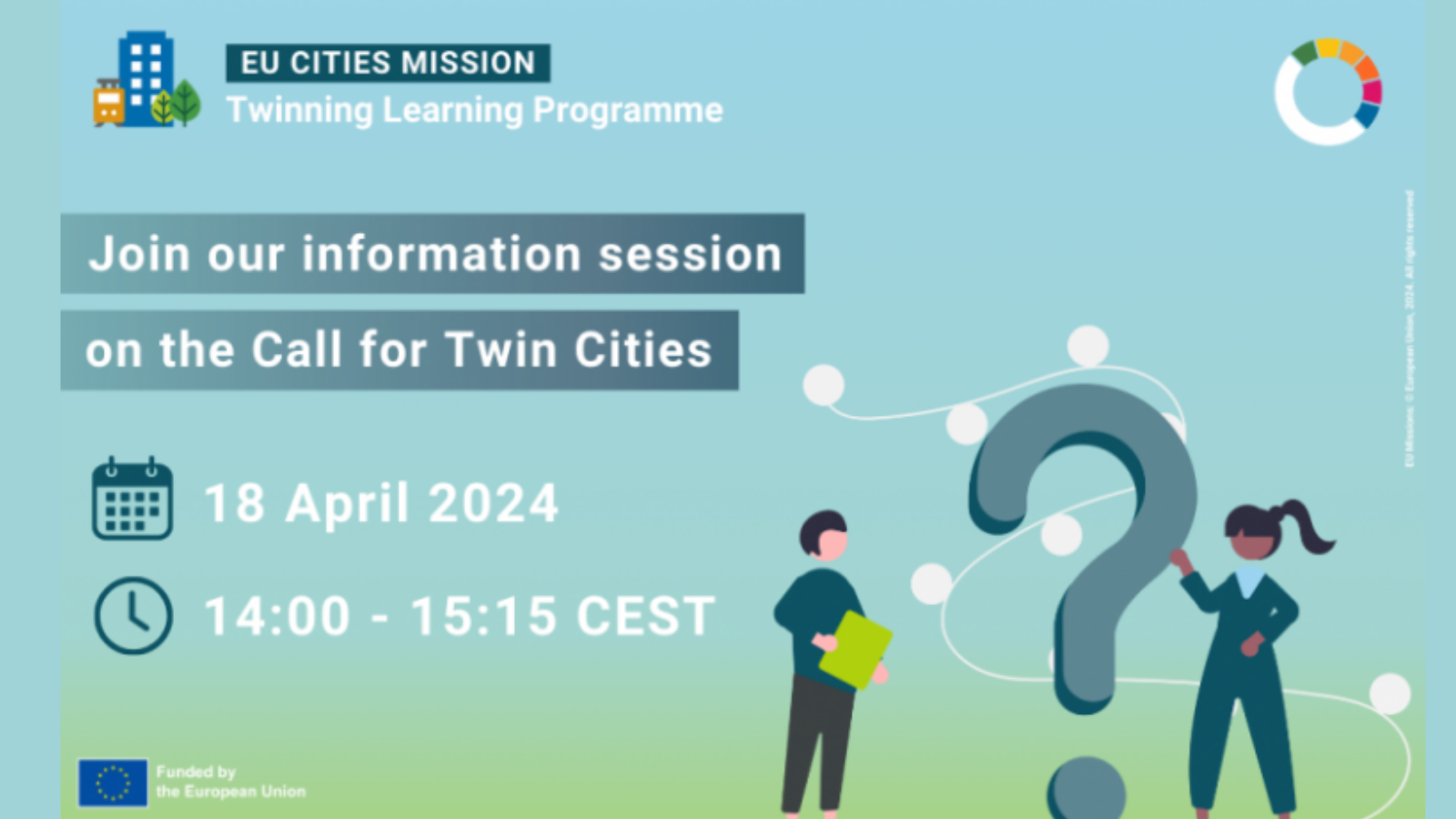
NZC Open Call for Twin Cities Cohort 2: Information session
NetZeroCities is hosting an information session on their Call for Twin Cities for prospective applicants on 18 April from 14:00-15:15.
This information webinar will provide guidance and support to prospective Twin City applicants on applying to the Call for Twin Cities Cohort 2 and offer a space for applicants to have their questions answered and provide an overview of the Twinning Learning Programme.
The second call for Twin Cities is open until 31 May 2024. More information on the call can be found here.
Register for the webinar here.
- 18/04/2024 - 14:00 - 18/04/2024 - 15:15
- This meeting will take place online
- Lucy Hammond
-
Working Group
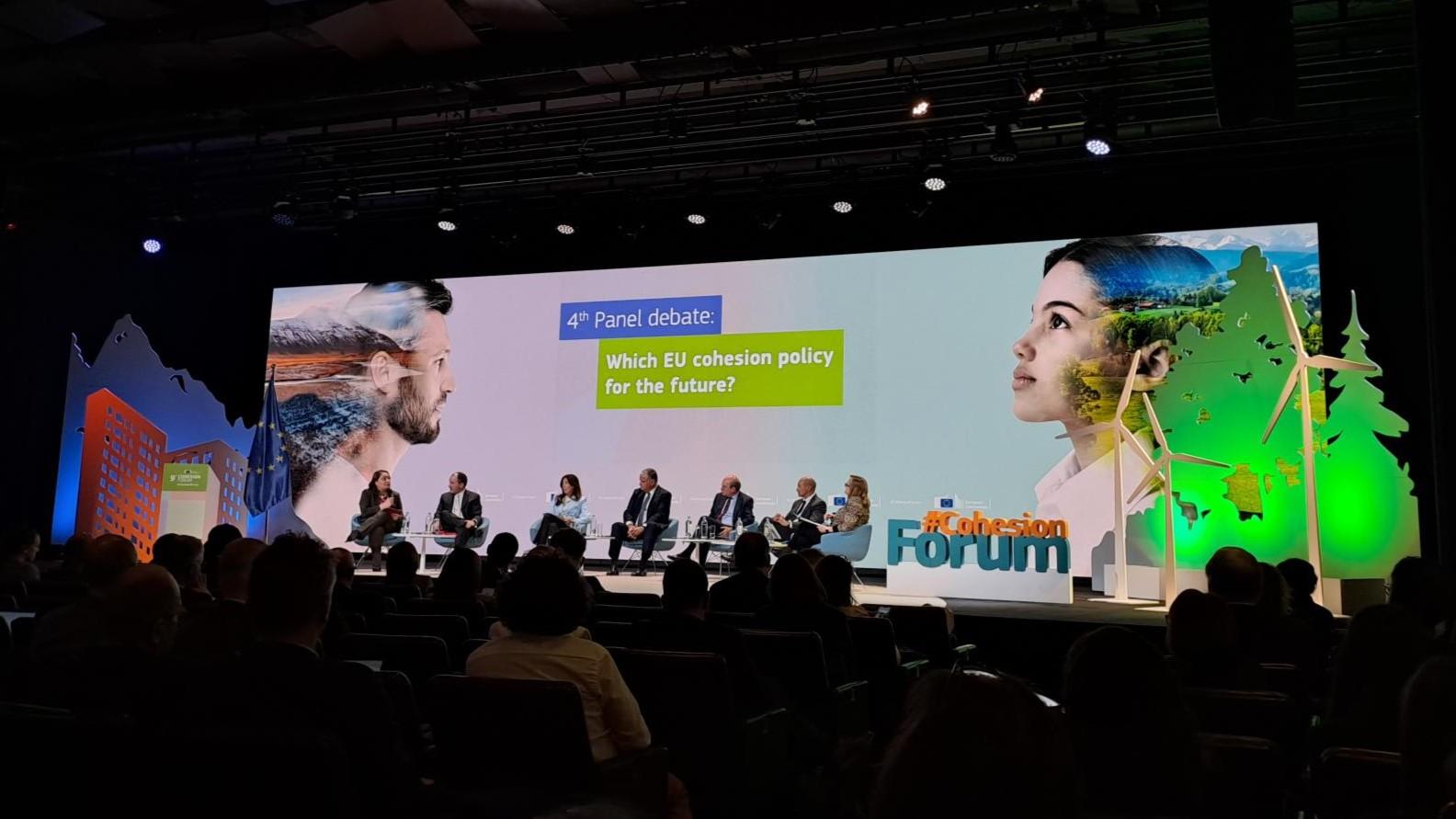
On the way to shaping cohesion policy post-2027
While following developments towards the next European Framework Programme for R&I (FP10), ERRIN also keeps a close eye on the future of cohesion policy, its R&I dimension and coherence with R&I policy post-2027. Have a look at recent key highlights on the topic below.
Two highly anticipated reports were released in the last couple of months: Report of the Group of High-level Specialists on the Future of Cohesion Policy on 20 February, and the European Commission’s 9th Cohesion Report on 27 March. The files offer analytical insights to the ongoing debate on cohesion policy post-2027. ERRIN welcomed the emphasis put on the need for Cohesion Policy to identify and exploit opportunities from all forms of innovation, and to tailor development strategies to put regions on a path to change while building on existing specialisation.
At the same time, there’s a concern that management of the cohesion policy might be centralised following the Recovery and Resilience Facility (RRF) model. ERRIN advocates the shared management principle to remain in place – ensuring the place-based steering of the policy implementation is crucial for achieving optimal impact.
Against this background, on 8 April, the COTER commission of the European Committee of the Regions (CoR) held a debate on the future of cohesion policy with Themis Christophidou, Director-General for Regional and Urban Policy, emphasising the need to maintain its fundamental principles. CoR will also prepare an opinion on a renewed cohesion policy post-2027, which will include responses to the two recent reports. In parallel, the #CohesionAlliance's call for a renewed Cohesion Policy post-2027 that leaves no one behind is also open for signing here.
On 11-12 April, the 9th Cohesion Forum took place, with participation of ERRIN and many network members. We welcomed the discussion on cohesion as objective shared by all policies. We also listened closely to the debate on cohesion policy for the future. Among some key points raised was one that simplification does not mean centralisation, and the need for increasing institutional capacities for change. It’s critical to focus on sustaining the role of regions, place-based perspective and coherence with R&I policy at the time of preparations to the next Multiannual Financial Framework post-2027.
Among the upcoming ERRIN activities linking to the future cohesion policy debate, the Policy and Smart Specialisation Working Groups will organise a joint in-person meeting on 22 May, focusing on Widening in FP10 and the impact of the debate on the future of cohesion policy. ERRIN members may learn more and register here.
Our network submitted its first messages on the cohesion policy post-2027 last August, contributing to the CoR opinion on the topic, adopted in November 2023. Find ERRIN’s input here.
- Ewa Chomicz
- 15/04/2024
-
Working Group
Ewa Chomicz
Interreg Baltic Sea Prio 3.1 Circular Economy: Donor-building platform – linking demolitions to new constructions
- 15/04/2024
-
Funding ProgrammeInterreg Baltic Sea Region
-
Deadline for Expression of Interest21 June 2024
-
NamePernille KernelOrganisation NameCapital Region of Denmark - Centre for Regional Development
- Get in Touch

Call for the BioBoosters accelerator programme is open – Apply now!
What’s in it for startups?
BioBoosters accelerator programme offers the attendees not only a tailored growth plan but also access to valuable industrial partnerships, investor contacts and unique testbed environments.
The programme offers startups coaching and mentoring by top mentors to crystallise their business models, increase customer/end-user understanding and prepare for external financing. The accelerator programme efficiently connects bioeconomy and agritech startups with potential end users, investors and leading corporations.
Highlights:
- The ecosystem your startup needs: Connecting startups with corporate partners, investors and potential pilot customers / end users
- Business acceleration: Training, mentoring and coaching by top mentors for crystallising the business model, increasing customer/end-user understanding and readiness for external financing
- Market fit and validation: Physical and virtual testbed environment of Bioeconomy Campus and partner farms for testing, validating and co-creating smart bioeconomy & agriculture in Nordic conditions
The call is on – Welcome to join the ride!
Call for the accelerator programme is now open here!
Applications are reviewed on an ongoing basis, so submit your application as soon as possible. Submit your application by 30 April 2024 at the latest. The programme kicks off on 19 June 2024. The duration of the accelerator programme is six months. The language is English, and participation is possible both virtually and on-site, so you can participate from anywhere in the world!
Participation in the accelerator programme is free of charge and equity-free for the startup companies. Instead, we work closely with the investors active in this business area and network the interesting startup companies and investors with each other.
The BioBoosters programme is part of the activities of the “Finnish Future Farm” project, which is funded by the Regional Council of Central Finland. The project is run by Jamk University of Applied Sciences, and partners are Poke Vocational School, Valtra, AGCO Power, Neste and the city of Saarijärvi.
Jamk University of Applied Sciences is firmly committed to fostering the growth in bioeconomy. “Bioeconomy and sustainable food production have the greatest potential in slowing climate change and promoting carbon sequestration. With the BioBoosters accelerator programme, we invite bioeconomy and agritech startups and early-stage growth companies to join us in cooperation to speed up the digital transformation of bioeconomy and food production”, encourages Director Minna Lappalainen, Institute of Bioeconomy, Jamk University of Applied Sciences.
- Aleksi Aho
- 15 April 2024
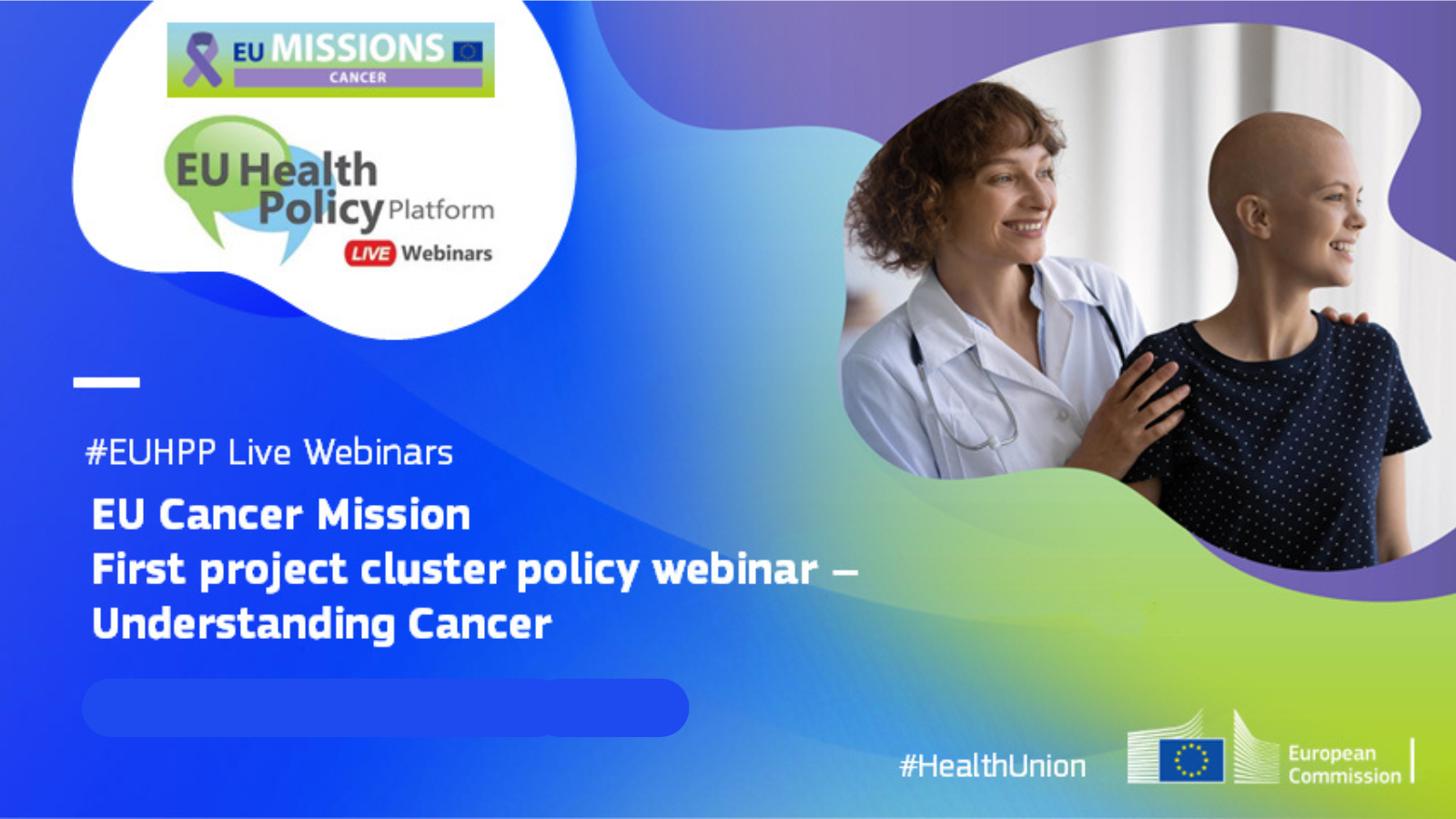
EU Cancer Mission - First project cluster policy webinar: Understanding Cancer
The first Mission Cancer project cluster policy webinar will explore how to work together to make better use of project results in the area of understanding cancer. The webinar will take place on 5 June from 14:00-17:00.
This #EUHPP Live Webinar will bring together stakeholder and citizen perspectives on research and innovation, providing early exposure to the cluster projects launched under the Cancer Mission.
The draft agenda can be found here.
Register for the event here.
- 05/06/2024 - 14:00 - 05/06/2024 - 17:00
- This meeting will take place online
- Lucy Hammond
-
Working Group
Lucy Hammond

The Cities Mission Platform extends its support to all European cities
The Cities Mission Platform, supporting the work of the 112 Mission Cities towards climate neutrality, is now extending part of its support to any European city aiming to achieve climate neutrality by 2050 at the latest. The NetZeroCities project, in which ERRIN is a partner, is currently managing the platform and facilitating the support offered to cities to help them achieve their climate neutrality objectives.
Through this programme, cities across Europe will be able to learn from the approaches implemented by Mission Cities, engage in online and in-person city-to-city exchanges at the EU and national level, and gain access to the online Mission Portal and its resources.
Help the Mission Platform understand how to best support your city’s journey towards climate neutrality
As cities embark on the journey towards climate neutrality under varying conditions and at different stages, the Mission Platform wants to assess their needs in order to tailor the support offered through the programme.
To do so, the platform has developed a needs-assessment survey that is currently open until 17 May 2024. The survey can be found here.
By sharing their insights, cities can help guide the development of the programme’s initiatives and support offers, ensuring that they are tailored to meet the needs of each city.
The Mission Platform is already offering an opportunity for cities beyond the 112 Mission Cities to engage with the platform through the Twinning Learning Programme. The second call for Twin Cities opened earlier this week and closes on 31 May 2024. The Twinning Learning Programme is designed to support replication and learning by matching Twin Cities to cities participating in the Pilot Cities Programme.
Cities interested in receiving news about upcoming opportunities and support offers by the Mission Platform can sign up to join a dedicated Mission Platform mailing list here.
- Heidi Johansson
- 11/04/2024
-
Working Group

Take part in a survey on examples of frugal and reverse innovation
The European Innovation Council and SMEs Executive Agency (EISMEA) has commissioned a study on Mapping and Scoping of Frugal and Reverse Innovation, implemented by Visionary Analytics, 4Front and GLORAD (see study endorsement letter here). As part of the study, a survey is now open to gather examples of frugal and reverse innovations. The results will contribute to a novel database that is currently under development.
The survey should take approximately 5 minutes.
If you know of or have been involved in the development, implementation or use of a frugal and/or reverse innovation, you are invited to learn more and access the survey via this link.
- Ewa Chomicz
- 11 April 2024
